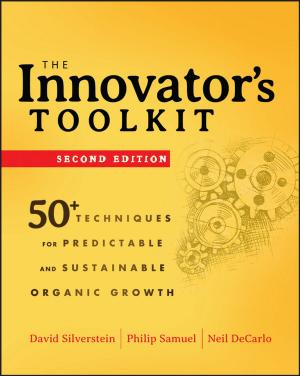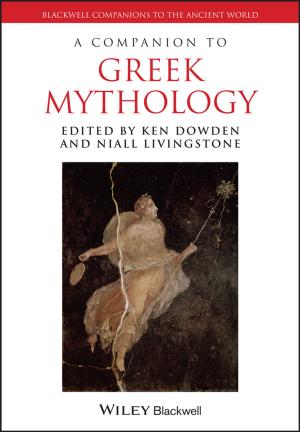Crowdstorm
The Future of Innovation, Ideas, and Problem Solving
Business & Finance, Economics, Development & Growth| Author: | Shaun Abrahamson, Peter Ryder, Bastian Unterberg | ISBN: | 9781118570388 |
| Publisher: | Wiley | Publication: | January 30, 2013 |
| Imprint: | Wiley | Language: | English |
| Author: | Shaun Abrahamson, Peter Ryder, Bastian Unterberg |
| ISBN: | 9781118570388 |
| Publisher: | Wiley |
| Publication: | January 30, 2013 |
| Imprint: | Wiley |
| Language: | English |
A practical guide to tapping into the abundant ideas and talent outside your organization
Successful organizations are constantly searching for new ideas. Historically, organizations have looked to their employees and select partners. They have used techniques like brainstorming to gather and evaluate ideas. However, in today’s market, talent and new ideas can be found everywhere.
The Internet has enabled organizations to greatly expand their searches far beyond their four walls. Instead of ten or one hundred people, organizations from startups to Fortunate 500 firms can work with thousands or tens of thousands to discover and assess many, many more ideas (as well as prototypes, partners and people). We call this Crowdstorming.
But how do you organize so many people and ideas to get the best results?
Our goal is to help our readers make Crowdstorming work; to help more organizations engage with people far beyond their organizational borders, to find better ideas, solutions, talent and partners so we can address some of our most challenging problems -- not just for the sake of business, but for our society, too.
- Shaun Abrahamson has spent more than a decade as an early stage investor and advisor partnering with leading startups and global organizations to identify, create and launch new businesses enabled by newly possible relationships with customers and experts.
- Peter Ryder is the former President of jovoto and has broad experience as a consultant helping organizations improve their business through the use of new technologies.
- Bastian Unterberg is the founder and CEO of jovoto, a Berlin and NYC based firms that organizes a 40,000 person strong creative community to work with global brands on problems ranging from new product design to sustainable architecture.
A practical guide to tapping into the abundant ideas and talent outside your organization
Successful organizations are constantly searching for new ideas. Historically, organizations have looked to their employees and select partners. They have used techniques like brainstorming to gather and evaluate ideas. However, in today’s market, talent and new ideas can be found everywhere.
The Internet has enabled organizations to greatly expand their searches far beyond their four walls. Instead of ten or one hundred people, organizations from startups to Fortunate 500 firms can work with thousands or tens of thousands to discover and assess many, many more ideas (as well as prototypes, partners and people). We call this Crowdstorming.
But how do you organize so many people and ideas to get the best results?
Our goal is to help our readers make Crowdstorming work; to help more organizations engage with people far beyond their organizational borders, to find better ideas, solutions, talent and partners so we can address some of our most challenging problems -- not just for the sake of business, but for our society, too.
- Shaun Abrahamson has spent more than a decade as an early stage investor and advisor partnering with leading startups and global organizations to identify, create and launch new businesses enabled by newly possible relationships with customers and experts.
- Peter Ryder is the former President of jovoto and has broad experience as a consultant helping organizations improve their business through the use of new technologies.
- Bastian Unterberg is the founder and CEO of jovoto, a Berlin and NYC based firms that organizes a 40,000 person strong creative community to work with global brands on problems ranging from new product design to sustainable architecture.















